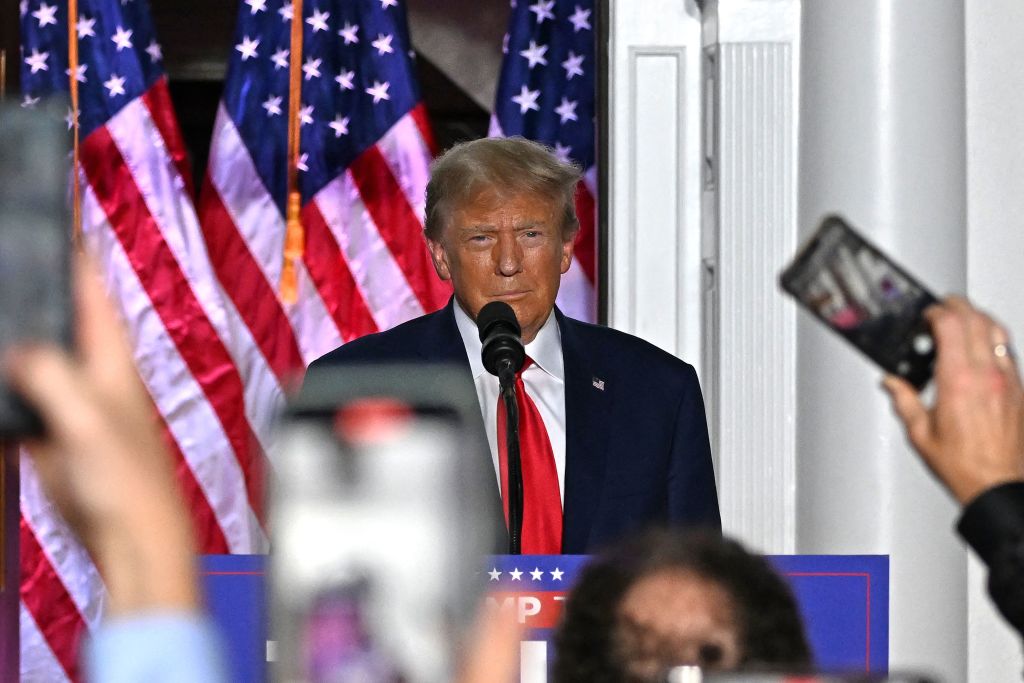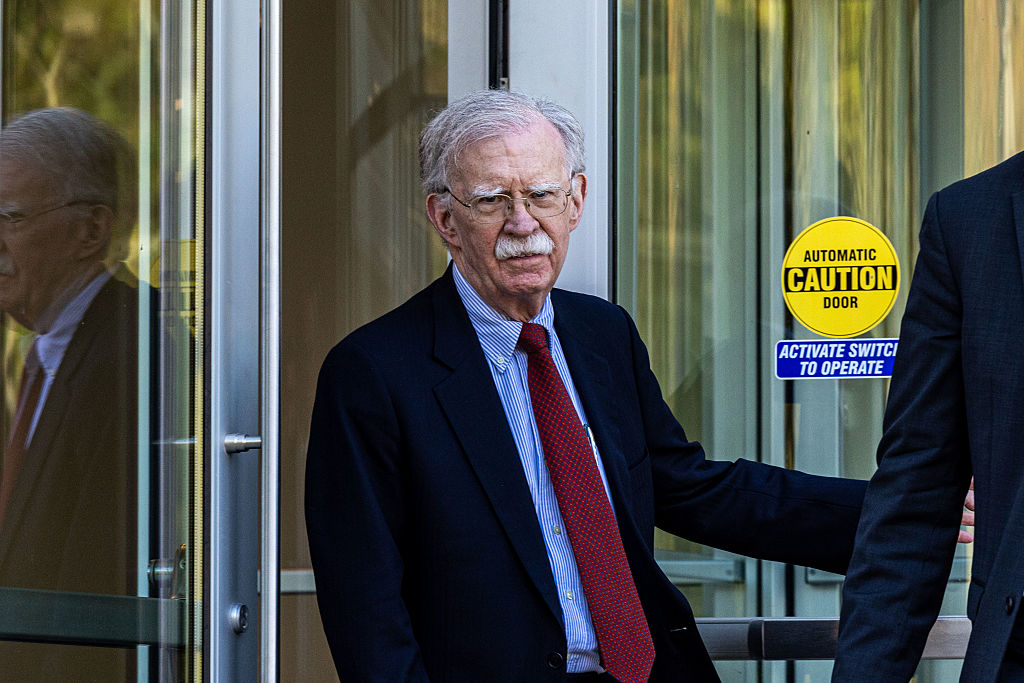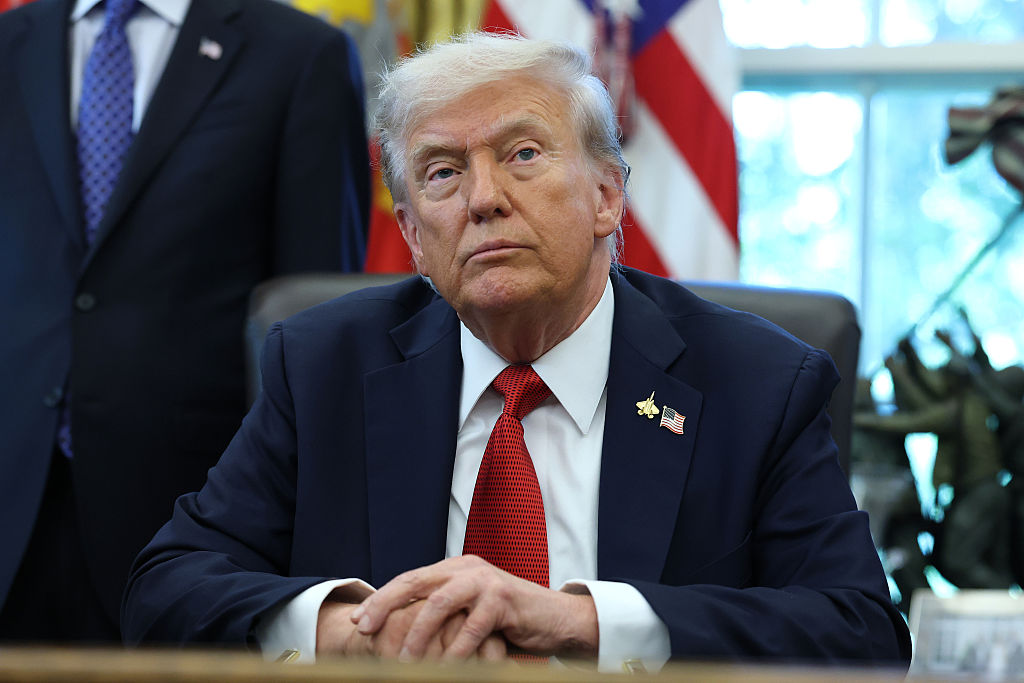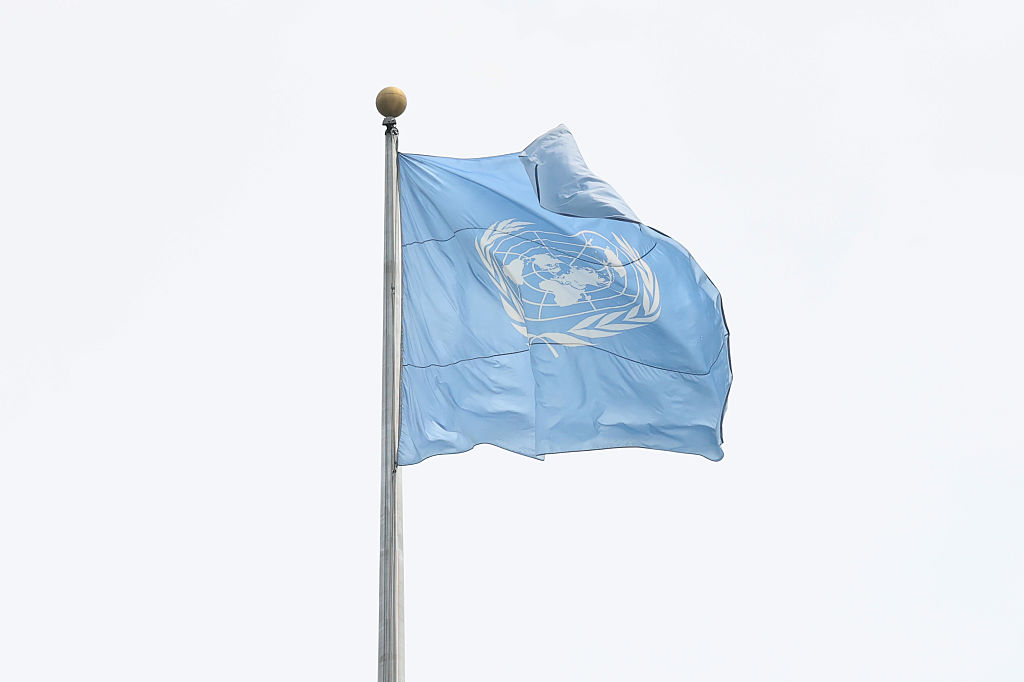Welcome to Thunderdome, your weekly update on the latest attempt by the obviously inappropriate behavior of a former president, or if you prefer, the latest attempt by the Deep State to stop the Orange Man! (It can be both.) Thanks for listening to our weekly podcast, the latest edition of which is available here — I hope you’ve subscribed, and here’s the player:
On this week’s edition we discussed the indictment and its fallout for most of the show, as well as how all the candidates — with a few notable exceptions — seem to be sounding a slightly different note on this one…
Who in Trump’s cabinet still supports him?
Political endorsements don’t really seem to matter any more unless they come with a big pile of money, or perhaps from a longtime governor with a strong political machine in a key state. But endorsements really are the old game at this point. Obviously Trump has many prominent supporters in the early going, and someone could conceivably criticize him harshly on this indictment and still come around to backing him or voting for him next November.
One thing that bears watching, though, is how fully Trump’s current defenders embrace him, and how much they seek to do so at arm’s length — criticizing perhaps DoJ and FBI hypocrisy on the Hillary Clinton experience, but adding the caveat that the president should not have dealt with classified material in the way he did. Or they might try to thread the needle as Indiana senator Mike Braun, up to this point a strong Trump supporter, is doing: “I’ve endorsed his policies.”
Other candidates attract the most attention on this point, because journalists run to them for comment whenever a shoe drops. But what’s more interesting to me is the behavior of Trump’s former cabinet members, particularly those who are prominent or tied to money. How many of them will still stand with him this time around? How many will he and his followers denounce as cuck RINO cowards when they were in fact the people he chose to further his agenda, often in multiple roles?
Mike Pence, Bill Barr, Mike Pompeo and Nikki Haley have all sounded a strong note of criticism in the wake of the Jack Smith indictment. You already have a plethora of former chiefs of staff as critics — how’s Mark Meadows doing again, anyway? But it doesn’t seem like the list is going to stop there. Will Betsy DeVos, Ben Carson, Steve Mnuchin, David Bernhardt and the rest put Trump in the rare position of having virtually his entire former cabinet criticizing him, with him blasting them as failures and losers in return? And what does that say about who will get to be in the next cabinet, and who will choose to stand for such a job next time, if there is a next time?
The Trump grievance message often depends on the idea that he is so often betrayed by others, given bad advice and the like. That had a certain heft to it when the people he viewed as betrayers were the likes of Paul Ryan or Mitch McConnell (and Elaine Chao, he views them as a pair). He could reasonably frame them as being DC people who wouldn’t go along with his agenda. But from January 6 onward, the frame expanded. It included people who had been extremely loyal, like Pence and others who had worked very hard to advance his agenda for four years.
You can blame some Republicans for your failures, but you can’t blame them all. And when you didn’t aim your fire at the people who, from Republican voters’ perspective, did the most damage — in Anthony Fauci and the health bureaucracy — there’s a notable gap in who Trump chooses as his targets, to make everything bad someone else’s fault.
We’ll have to see how many more in Trump’s immediate circle criticize him after the anticipated Georgia indictment. If the Mar-a-Lago raid and the New York indictment benefited him, this one seems more muted, and the Georgia case could prompt even more criticism.
Understand: I do not think this is a significant barrier to him getting the nomination, but it could be a serious barrier to him bringing the party back together if he does… and he doesn’t have a Hillary Clinton on the other side to help him do that.
Trump’s top legal advisor isn’t a lawyer
It was always a mystery why the former president didn’t just hand over any obviously classified documents to the National Archives in the first place, and then sue if he wanted any of them back. (The “My Boxes” theory from C.J. Ciaramella is the likeliest reason.) But thanks to a Washington Post report, we now know one additional area of explanation: he was getting advice from the head of Judicial Watch, Tom Fitton. Fitton has a particular legal theory of the case, which is fine, except for the fact that he is not a lawyer.
From the Post:
Trump time and again rejected the advice from lawyers and advisors who urged him to cooperate and instead took the advice of Tom Fitton, the head of the conservative group Judicial Watch, and a range of others who told him he could legally keep the documents and should fight the Justice Department, advisors said. Trump would often cite Fitton to others, and Fitton told some of Trump’s lawyers that Trump could keep the documents, even as they disagreed, the advisors said.
In an interview Wednesday, Fitton said he dined with Trump on Monday night at his club, eating filet mignon with the former president one day before his first court appearance on the document charges.“I saw him last night; he’s in a good mood. He’s serious and ready to fight under the law.”
It’s worth noting that Trump was not charged for any of the documents that he returned voluntarily — because that’s normally the way these things work. If Fitton is indeed the reason that Trump ends up losing this case, it’ll be a strong reminder about the importance of picking good counsel.
DeSantis’s strategy requires a lot
One point I’ve repeatedly cited in how this 2024 race is different from 2016 is that then, as with John McCain and Mitt Romney before him, Trump actually held the most support among moderate and centrist Republicans. Now things have changed. Henry Olsen unpacked the dynamics this week, and reflects on what they tell us about DeSantis’s strategy:
Trump’s base of support within the GOP is now the polar opposite of what it was in 2016. National polls all show that Trump’s highest level of support is now among very conservative voters, followed by his backing with somewhat conservatives and relatively low standing with moderates. So one might think the best strategy would be to counter Trump’s strength by being conservative enough to satisfy the somewhat conservatives and relying on moderate voters in later primaries after their favorites drop out to pull ahead.
That’s probably still the soundest approach for someone such as DeSantis, but it’s complicated by two new developments within the GOP: First, somewhat conservatives want a fighter for conservative values. They might be willing to settle for someone who can compromise in the end, but they want someone who acts and sounds more like a MAGA Republican than someone from the pre-Trump era.
Second, moderate Republicans’ distaste for Trump is palpable. These voters have higher disapproval rates for the former president and are very unlikely to back him when the race winnows down. As a May CNN poll found, only 12 percent of moderates who backed someone other than Trump picked him as their second choice. These voters remain resistant to DeSantis — 40 percent selected Nikki Haley, Mike Pence or Chris Christie as their second choice. But they might just hold their nose and back the Florida governor in a final contest with Trump.
This means DeSantis’s gamble has some chance of success. If he can dislodge some supporters from Trump’s ideological base, he would also likely gain with the MAGA-fied party center and thus secure his position in the final round. He can then hope moderate non-Trumpers switch to him despite any misgivings they might have.
This might be one reason why you’ll hear more MSNBC-like critiques from Trump supporters, and candidates such as Vivek Ramaswamy and Chris Christie, of DeSantis’s “book bans,” his targeting of Disney, and other policy steps that may sound out of place in a GOP primary, but are intended to make centrist Republican voters uncomfortable.
One more thing
Oftentimes when we get into a period where we’re paying attention to the ups and downs of early presidential polls, which are mostly trash and not that useful, we ignore the larger trends that are a lot more important. This one shouldn’t be ignored: Pew finds that the support for the Black Lives Matter movement is down significantly, to the point that it’s essentially a coin flip.
From a movement that was presented by the media as a unifying thing, which had people like Mitt Romney marching with the protesters in the summer of 2020, to today, BLM is now just a standard partisan question — 84 percent of Democrats support, 82 percent of Republicans oppose. But this age breakdown from Pew was what surprised me the most: “64 percent of adults ages eighteen to twenty-nine support the movement, compared with 52 percent of those thirty to forty-nine, 46 percent of those fifty to sixty-four and 41 percent of those sixty-five and older… And while 49 percent of young adults say the movement has been highly effective at bringing attention to racism, 32 percent of those ages thirty to forty-nine, 27 percent of those fifty to sixty-four and 22 percent of those sixty-five and older say this.”
What does this mean? It means that unless you’re under thirty, you already see this push as the partisan, divisive issue that it is — and not what the media tells us. A good thing to remember the next time one of these stories breaks, and the media inevitably demands Republicans — especially 2024 candidates — apologize for the existence of racism again.

























